Heading to Japan or just curious about its cultural quirks?
If you’re thinking about a visit to Japan, one subject you might find is its drinking culture – specifically, what's the drinking age in Japan?
In this laid-back but informative guide, we’ll run through the legalities, as well as what makes quaffing in Japan a little bit different.
Don't forget, it’s handy to have an iRoamly Japan travel eSIM, violating the drinking age can lead to severe consequences, regardless of whether you're a tourist or a local.
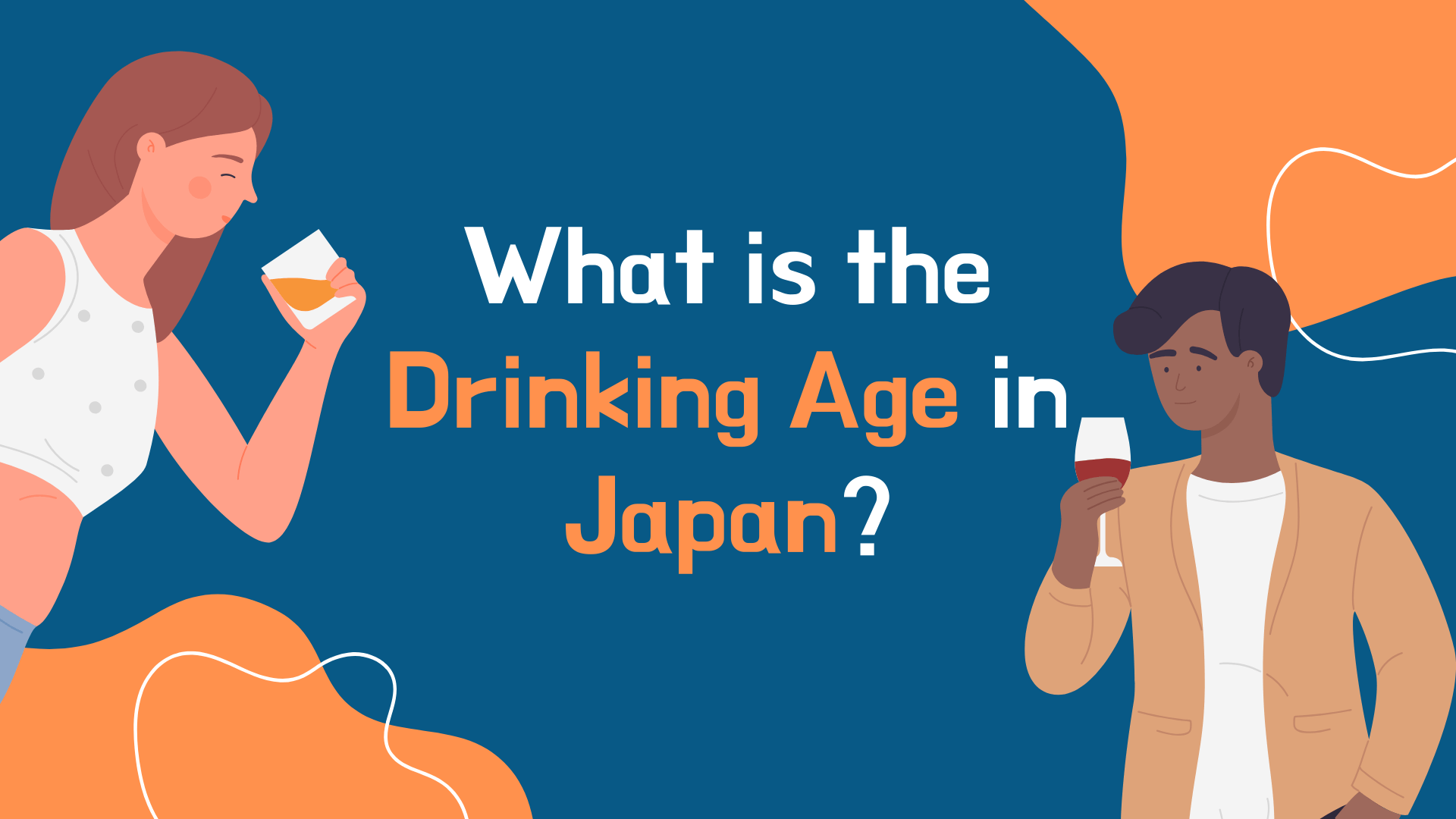
What’s the Drinking Age in Japan?
In Japan, you need to be 20 to drink alcohol legally. This is considered the beginning of adulthood in Japan and is designated as the minimum age for various adult privileges (and obligations) such as voting and marriage, reflecting the values of democracy in Japan. It is also illegal under Japanese law to sell alcohol (or tobacco) to anyone younger than 20.
Much like other countries, these laws are strict and enforced both to maintain societal standards and to protect the health of minors.
The law by which it is illegal for someone under age to drink actually dates back quite far. It was first implemented in 1922, making the prohibition on underage drinking one of Japan's oldest extra laws for the sake of the children.
Along with binding minors from consuming alcohol, the law demands that parents (or parental figures) must ensure that their charges are notere not drinking themselves. Penalties can apply to the family as a whole should they be found out.
What Happens if you Get Caught Drinking Under 20?
If a minor is caught drinking, they could face fines or disciplinary measures. Parents and guardians are also likely to face repercussions if they have allowed or not adequately prevented the minor from having alcohol. Some penalties may also be applied.
And similar to Japan's stance on marijuana, violating the drinking age can lead to severe consequences for tourists as well.
Can 18 year olds drink in Japan?
For foreign nationals, residency status or tourist visa makes no difference when it comes to alcohol. If underage foreigners are caught drinking in Japan, they could face jail time or deportation. It’s always important to know the laws of the land you are visiting or living in!
Japan’s Stance on Under 20 Drinking
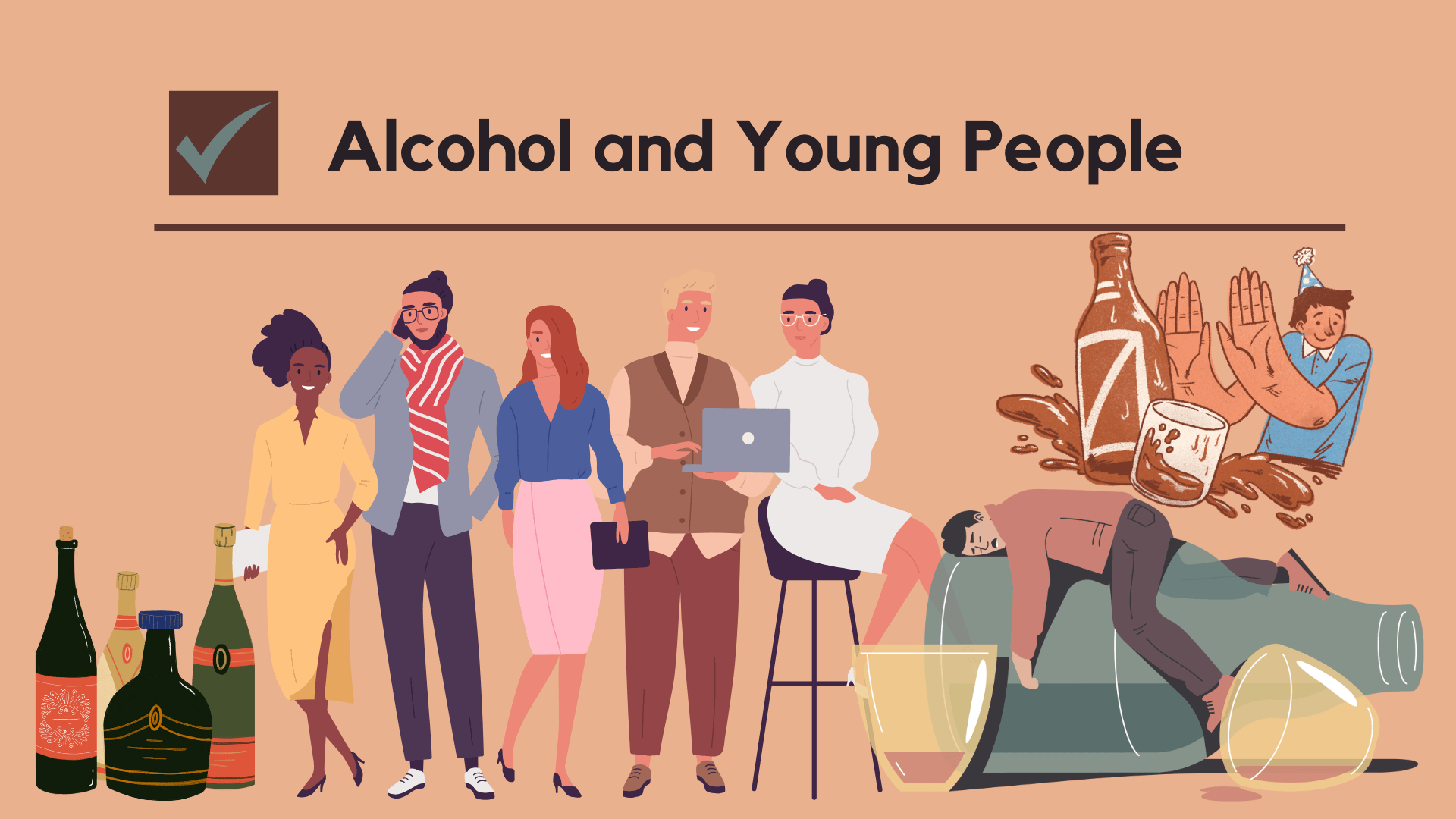
Japan has long taken a robust standpoint on underage drinking, and legislation is supported by educational initiatives. For example, in 2005, schools were furnished with a DVD titled “Alcohol and Young People: The Impact on Growing Brains” pointing out the negative impact of alcohol on young and developing brains, to help better educate and engage youth with the law.
In the same year, the Brewers Association of Japan rolled out “STOP! Under 20 Drinking”, an education and outreach campaign to help awareness and prevent underage drinking.
Buying Alcohol in Japan
When foreign visitors arrive in Japan, one of the questions that frequently comes up during any stay is what exactly is involved in buying alcohol, and how much of the unique culture and legal framework surrounding alcohol do they need to be aware of? Here’s what you need to know:
Age Calculation
For non-locals, one useful feature of the Japanese legal drinking age is that it is calculated the same way as it is in the US (and most other places operating on the Gregorian calendar): date of birth versus the calendar year.
In South Korea, age can be tallied differently, which makes things more complicated for some young travelers, but there’s no such issue to contend with in Japan.
Can Tourists Buy Alcohol in Japan?
Yes, anyone who is visiting Japan can legally buy alcohol, although there are some caveats. The legal age for purchasing and consuming alcohol in Japan is 20, so anyone who appears to be younger is likely to be asked to provide ID, and how that proves you are old enough to drink is with a passport or a recognized national ID card.
Situations Tourists May Encounter
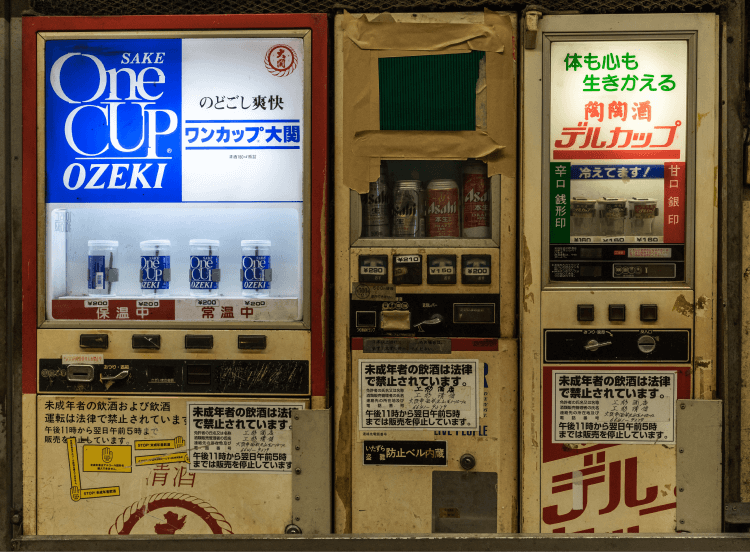
Expect to have to jump through a few age-check hoops when buying alcohol, particularly in convenience stores and from vending machines, which often ask you to confirm your age is over 20 by pressing a button or entering a date of birth.
In sit-down eateries and bars, be prepared to be asked to show your ID card or passport in order to prove you are able to legally drink. It’s best to be prepared and have it ready to avoid any embarrassment or delay while enjoying Japan’s extensive range of alcohol.
What Kind of Alcohol is Drunk in Japan?
While local standards can be just as diverse and exotic as foreign products, Japan enjoys a wealth of traditional drinks that are both wide-ranging and deeply flavorful. Here are five alcoholic beverages to include in your itinerary when you next visit:
Umeshu: A sweet and fruity plum wine, traditionally drunk as a post-prandial treat or a light aperitif.
Shochu: An intense group of distilled spirits, stronger than sake, made from barley, sweet potato, or rice.
Sake: Known as nihonshu in Japan, this rice wine is a cornerstone of dining and ceremony.
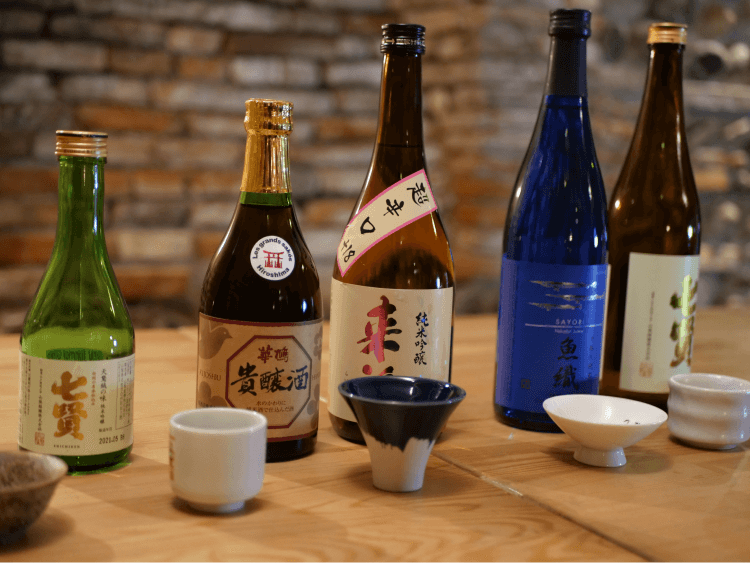
Whisky: Shockingly, Japan’s devotees have earned it a place alongside Scotland’s finest.
Beer: From a traditional lager to craft variants, Japanese beer is a vibrant and innovative market.
Japanese Drinking Etiquette and Taboos
Knowing what to drink is important, but understanding how to drink is equally crucial in Japan.
Drinking in Japan is not only about the drink itself, but is a ritualistic event, complete with its own set of etiquettes and taboos. Here’s a closer look at some of them:
Etiquette:
Don’t pour your own glass: Always let someone else pour your drink, and return the favour.
Receive a drink with both hands: A sign of respect and thanks to the person giving you the drink.
Always start with a ‘Kanpai’ (Cheers): This is crucial when drinking as a group.
Thank the person giving you a drink: ‘Arigatou gozaimasu’ (Thank you very much) never goes amiss.
Taboos:
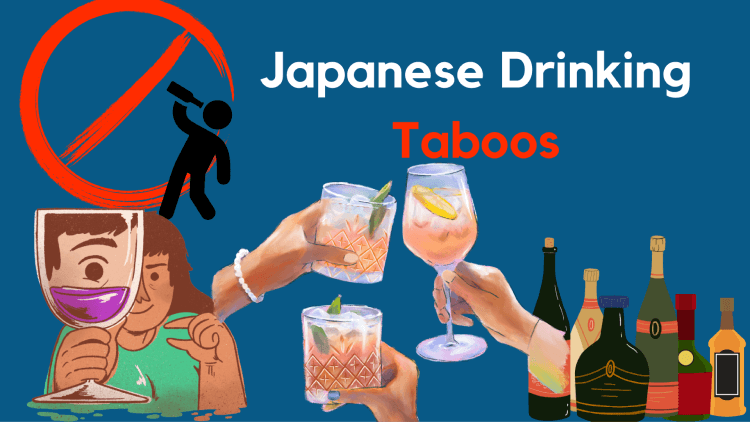
Don’t start drinking until everyone has a drink: It is impolite to start drinking before everyone has been served and made a toast.
Don’t be loud or rowdy: Having some decorum is well-regarded in Japanese culture.
Don’t pour your drink until empty: You should finish your drink before accepting or pouring a refill, as a sign of respect to your drink and those around you.
Don’t over-indulge: While social drinking is a big part of Japanese culture, handle it in moderation. Overconsumption is viewed poorly and implies a lack of self-control and respect for others.
FAQ
Do you need ID to drink in Japan?
In Japan, you will be carded when buying or consuming alcohol if staff believe you to be under 20.
Where is the drinking age 16?
Countries like Germany or Austria set their legal drinking age at 16 for beer and wine.
What country has the lowest drinking age?
Burkina Faso. In Burkina Faso, the age of alcohol consumption is as low as 13.
What country has no minimum age of consent?
Ages of consent range from 12 to 21 around the world, with most countries establishing them between 14 and 16. About a dozen countries, including some in the Middle East, have no restrictions on sex, age of consent or no, including premarital sex.
Summary
Knowing the law and culture behind Japan's drinking habits can enhance your time in the country significantly.
Whether you're sipping sake beneath the cherry blossoms or enjoying a raucous evening in an izakaya, these insights can help you connect more fully with local customs.
Sip (responsibly) from Japan's cup, and dive deep into the cultural tapestry woven with each tipple.
